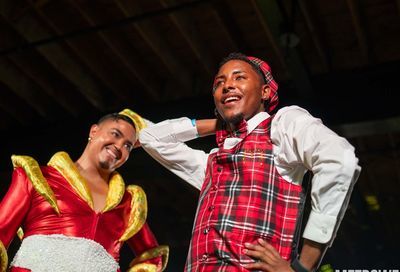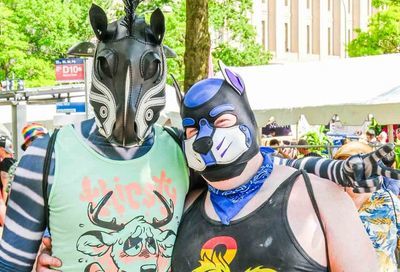The Invisible Youth
Commentary: Town Square
My mother called me the other night looking for answers. A childhood friend of mine had killed herself, and my clearly shaken mother wanted to know why.
It makes sense that my mother came to me with her questions about suicide. Having worked with gay youth in various capacities for the past five years, statistically she has a right to assume that I would have firsthand experience with suicide. Studies on youth suicide rates have shown that gay youth are many times more likely to kill themselves than their peers. Fortunately, all I had to provide my mother with were statistics.
I told my mother that the gay youth I see and know of — the ones that know of and reach out for help from gay youth centers, crisis hotlines and gay-friendly mentors — are the ones that are often saved from any internal despair that they may be feeling. It is often the youth that are not seen — the invisible youth — who are more likely to fall prey to depression and thoughts of suicide. These youth may not have hope or know that there are lifelines out there for them.
I know a great deal about these invisible youth, because I once was one. But ironically, it was probably my visibility that caused me the most problems. As soon as sexual awareness hit the boys on the playground, I became the favorite target for abuse from many of my peers.
When my peers started to perceive that I was gay, through cues like my mannerisms and vocal inflections, I found myself verbally and physically harassed on a regular basis. While the abuse happened, I was visible to everyone who could not help and some who should have. But I was invisible to everyone who had the means and will to help me. It is impossible to imagine that no teacher or administrator in any of the schools I attended ever saw me being victimized.
I never reported any harassment at school — it did not make sense to do so when I thought the whole system was already stacked against me. If adults did not do anything to help me when they saw me being abused in school hallways and in the classroom, why would they care to help me if I chose to ever cry out about it?
What also stopped me from reporting any incidents was that I could not yet admit to myself that I was gay.
I did try to stop the abuse myself, but the strategies I employed were terrible. I tried keeping quiet in hopes of blending in. I tried to pass as straight. None of it worked. I was already a target. There was no special formula for getting out of this. Sometimes even the quiet kids are picked on.
When I ran out of ways to escape my problems alive, suicide entered into my mind as a solution. Thoughts of attempting suicide were always whispering into my ear. It was a deafening whisper, but no one else ever heard it. It became such a habit to think about suicide, I began to think the thoughts were normal. It was not until I was rushed to the hospital for stress-induced pains that I realized suicide is not normal. In the hospital a questionnaire surveyed my thoughts on suicide like it was a bad thing. I responded to the questionnaire by checking a box that indicated that I never thought about it.
For six years, deadly thoughts crept into my mind with frequent regularity. I succeeded in not killing myself during these years through an impossible fear of death and an unhealthy coping mechanism. Over time I learned to deal with stressful situations by disengaging emotionally from the world. This way of coping with things is something I have kept with me over time, and has turned out to be a mechanism that creates some awkward situations in my relationships.
It was not until my senior year of high school that things started to get better. I met my first boyfriend. He was a flamboyant and out freshman. I only eventually came out of the closet because he made it look so easy and I wanted to be with him. He was visible and I was invisible. He took me under his wing and brought me to a local support group for gay youth that he had been attending. Finally I was visible, getting help from the right people and things only got better from there.
Nobody knows how many more invisible youth are out there. Thankfully, many of them eventually find someone or some place that pulls them out and into the open and gives them hope. Unfortunately the good word never reaches some of them, the youth who will leave us and be forever, immortally invisible.
Graham N. Murphy, an award-winning advocate for GLBT young people, lives in D.C. and works in the education field. He can be reached at respond2graham@gmail.com.
Support Metro Weekly’s Journalism
These are challenging times for news organizations. And yet it’s crucial we stay active and provide vital resources and information to both our local readers and the world. So won’t you please take a moment and consider supporting Metro Weekly with a membership? For as little as $5 a month, you can help ensure Metro Weekly magazine and MetroWeekly.com remain free, viable resources as we provide the best, most diverse, culturally-resonant LGBTQ coverage in both the D.C. region and around the world. Memberships come with exclusive perks and discounts, your own personal digital delivery of each week’s magazine (and an archive), access to our Member's Lounge when it launches this fall, and exclusive members-only items like Metro Weekly Membership Mugs and Tote Bags! Check out all our membership levels here and please join us today!





















